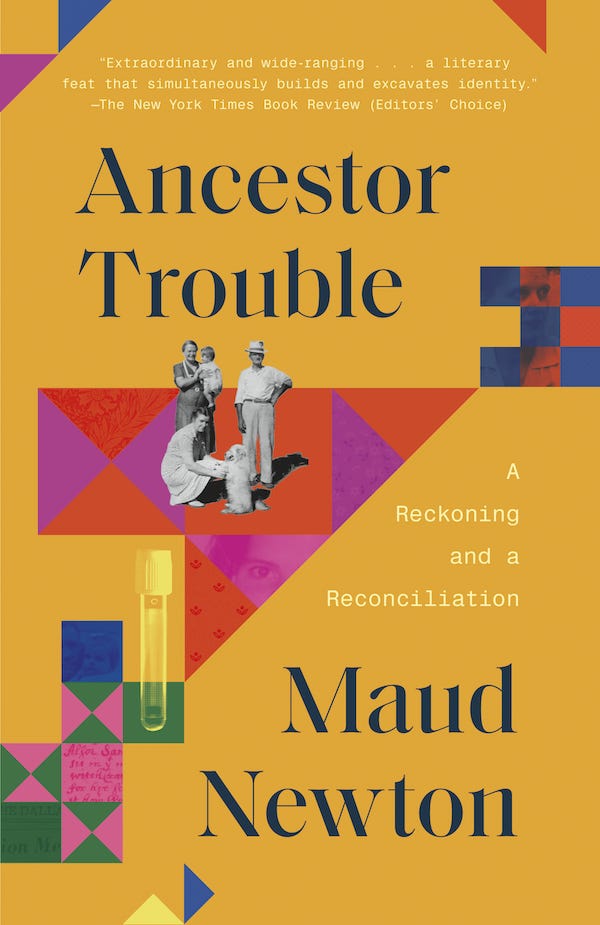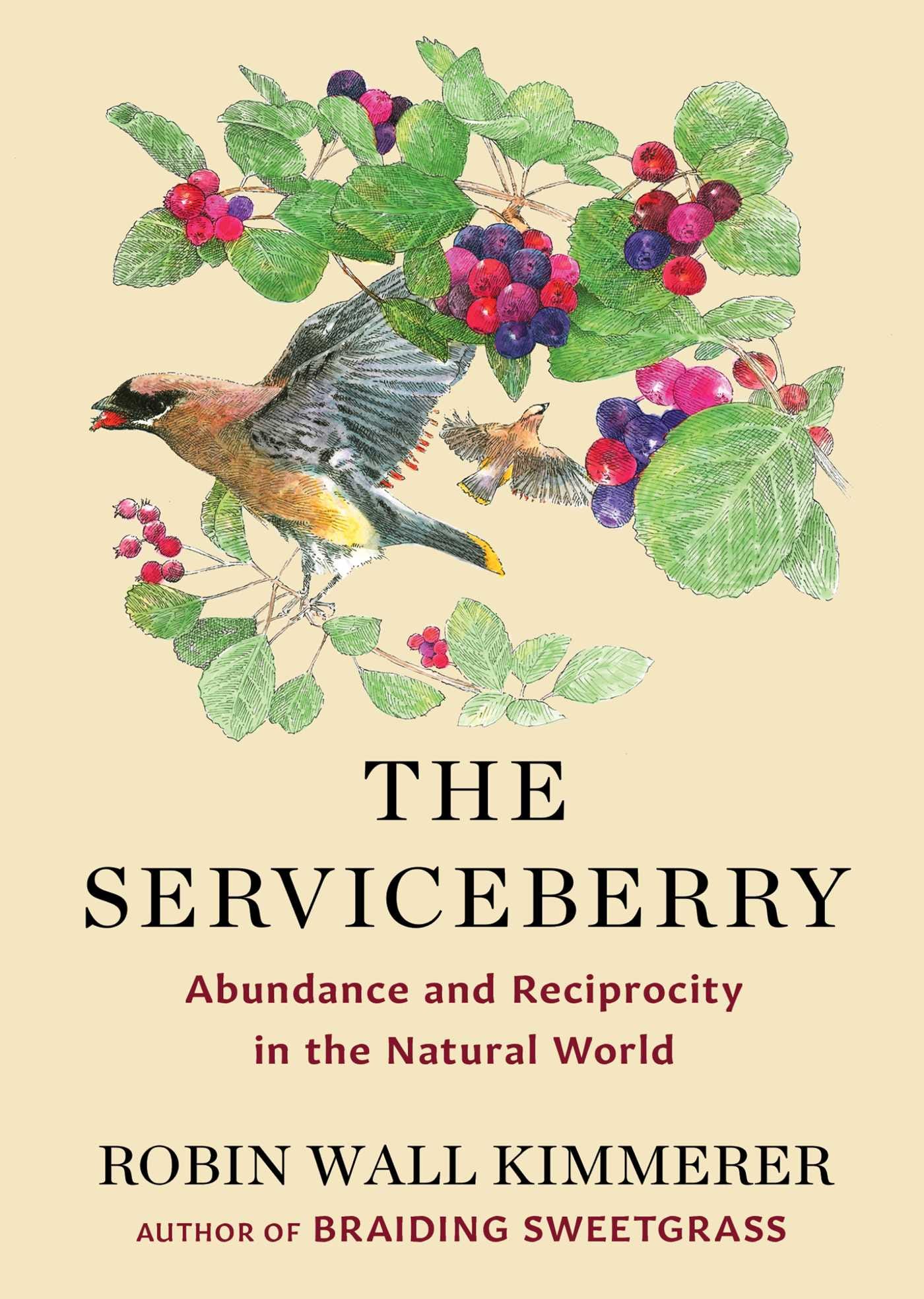Hi friends,
I have a cold I can’t quite shake, the kind that’s tenacious but not terrible. While drinking thyme-rosemary water and honey-lemon tea and endless other immunity concoctions, and doing my best to ration exposure to the news, I’m alternating between reading Louise Erdrich’s The Sentence and listening to the audiobook narrated by the author. In both forms, the book is fantastic. It’s deeply connected to many preoccupations of this newsletter: the toxic ooze of harmful family history that goes unacknowledged, the settler yearning for absolution, the imperfect healing that can come from truth. It’s also a smart meditation on the power and limits of books and language, starting with the title itself. I say meditation because The Sentence circles these themes over and over again, so that they become increasingly infused with nuance and meaning even as they gather a physical force that’s anything but abstract. It’s funny, too, as her work always is.
I recommend picking it up if you haven’t. You can buy a signed copy directly from her bookstore (a fictional form of which, like the author herself, shows up in The Sentence).
And hello, new subscribers! Thanks for following along. Since this newsletter is free, I hope you’ll indulge my pitch for my book, Ancestor Trouble, which might be a good gift for the family historian in your life, especially if their interest in ancestors branches out in hard, twisty, intersecting directions. Among other things, the book delves into genealogy, genetics, mental health, generational trauma, systemic harms, and spiritual practices around ancestors and our alienation from those practices in Western modernity. For a sense of what the writing is like, here are a few quotes from a couple excerpts and related things I’ve published.
"If our lives have been circumscribed because of the way we’ve viewed our family, confronting our ancestors as complicated human beings rather than distant archetypes can suggest different ways of being ourselves."
“I have loved my father and I have feared him, and I have lain awake in the dark late at night worrying what it means to have half his genome inside me, but I have never understood him… The older I get, the more I search backward, as though if I could know everyone who led to my father, who made him who he is, I would know him, too.”
“No matter which way I turned, the violent underpinnings of this country were part of my family.”
“Ancient monuments like Stonehenge that align with seasonal astronomical phenomena are some of the most magical and most grounding human creations—as are standing stones to commemorate the dead, which the stones of Stonehenge arguably, if not obviously, are.”
Last month, Seth Sanders, a religion scholar, wrote that the book “contains the clearest and most compelling brief account of ancestor veneration I’ve ever encountered as a religious studies professor, which is why I assign it to my Death and Afterlife classes.” In many ways, this last part of the book was the closest to my heart. It was also the part I was most nervous about. On the more empirical end of things, Carnegie Library recommends Ancestor Trouble as a resource on the “risks and rewards” of genetic genealogy, as a likely sale of 23andMe data looms.
Greenlight Bookstore in Brooklyn sells personalized copies, if you’d like one.
And now for some links:
Robin Wall Kimmerer's The Serviceberry is out! To me it’s a perfect compass not only after this election but in general at this time of year, when individualistic and often saccharine concepts of gratitude predominate. All flourishing is mutual, Kimmerer argues, and the serviceberry models this. (I also enjoyed her editor’s open letter.)
“An I.V.F. Mix-Up, a Shocking Discovery and an Unbearable Choice: Two couples in California discovered they were raising each other’s genetic children. Should they switch their girls?” Susan Dominus’ article is written with so much care.
“The dolls she gave me were a lot like her, pretty but not inviting touch.” Oprah published a gorgeous essay by Sarah Smarsh on her mother and how Smarsh realized at an early age that she was, as she puts it, unloved but not unlovable.
“For millions of people in the Americas, our Indigenous heritage is something tinged with mystery. We look into a mirror and believe we see the Mayan, the Aztec, or the Apache in our faces. The hint of a high cheekbone; the very loud and obvious statement of our cinnamon or copper skin… But the particulars of our Indigeneity, the weighty and grounded facts of it, have been erased from our history.” Héctor Tobar’s introduction to Miguel Ángel Asturias’ Men of Maize is excerpted at the Paris Review.
A Cosmos Magazine article titled Human ancestors visited the same quarries for hundreds of thousands of years includes the following detail: “A study of indigenous groups that lived until recently, with some still alive today, shows that hunter-gatherers attribute great importance to the source of the stone—the quarry itself—imbuing it with potency and sanctity, and hence also spiritual worship.”
“Highlighting both her mother’s experience and the experiences of countless other students…, their families, and their children, Medicine River paints a stark portrait of communities still reckoning with the legacy of acculturation that has affected generations of Native communities. Through searing interviews and assiduous historical reporting, Pember traces the evolution and continued rebirth of a culture whose country has been seemingly intent upon destroying it.” This is from the publisher’s description of Ojibwe journalist Mary Ann Pember’s Medicine River: A Story of Survival and the Legacy of Indian Boarding Schools, which is coming next year and is on my nightstand.
“My mother needed mental health treatment. She got a jail cell.” Nina St. Pierre’s essay for Time on poverty, single motherhood, and her own mother’s treatment after her mom set the house on fire, has a great deal of relevance for the political reality we’re moving toward. Her memoir Love is a Burning Thing came out last spring.
"[T]o deny one's genealogy with the earth was to commit treason against one's soul." This quote from Terry Tempest Williams’ Refuge, which I read for the first time this year, has stayed with me.
In general, because this newsletter is free and I am the way I am, it shows up when it shows up, ideally never too often. But I’m wondering how you feel about Saturday late afternoon or early evening delivery. If you’re so inclined, comment or drop me a line and let me know.
How are you all holding up? It was good to have (select) family in town last week, but then the visitors went home, the pie was gone, and the reality of our present and what’s to come settled like indigestion again. I imagine many of you are having a similar feeling. And I’m sending you all good wishes for burrowing and rest for the strength and renewal we’ll need in the year to come.
Longtime readers may recall that I love Annie Lennox’s pagan interpretation of “God Rest Ye Merry, Gentlemen,” so I’ll close with that video.






So many great reading suggestions! Thank you 🙏
And that Annie Lennox video! Superb!